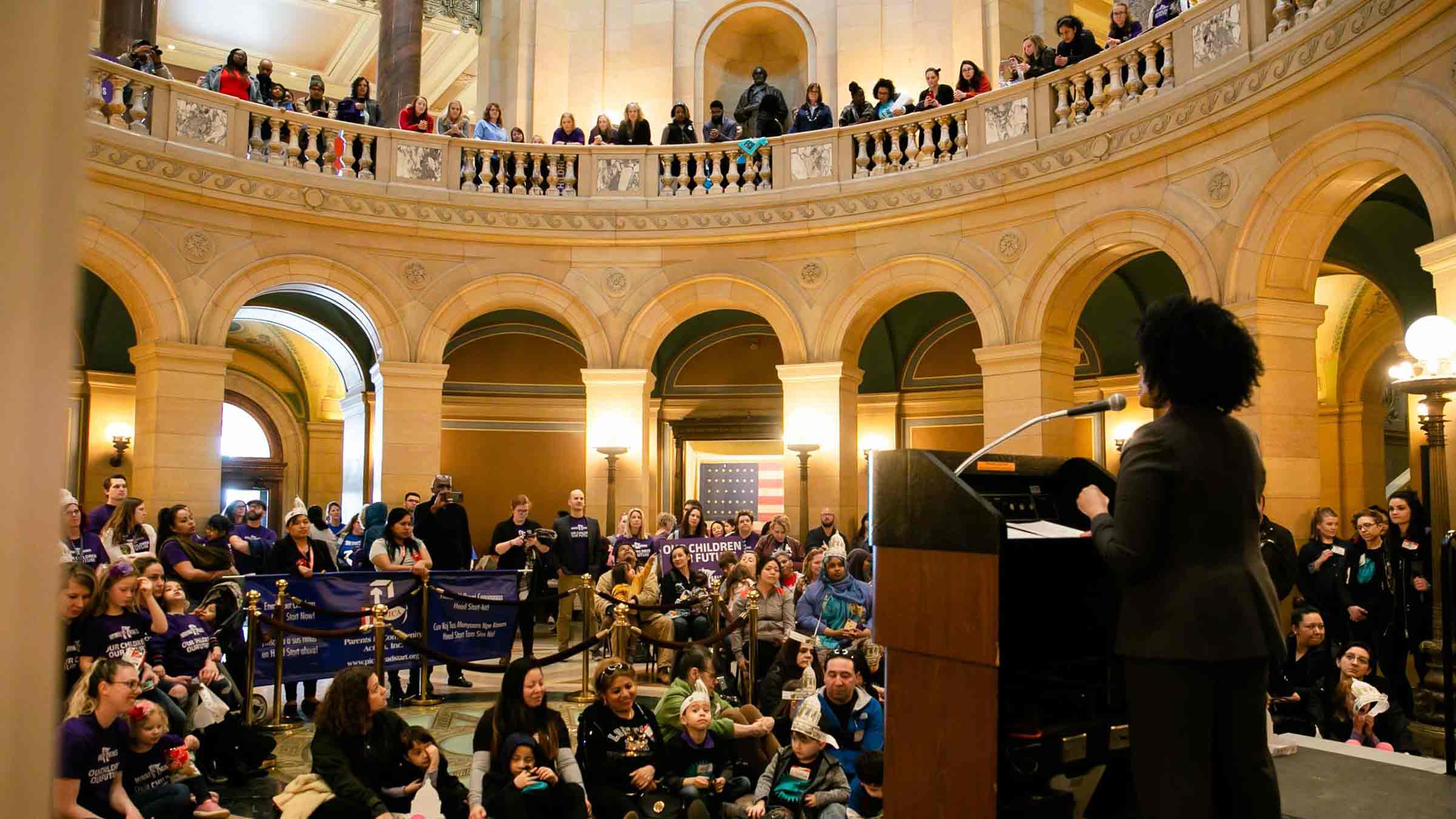
MINNEAPOLIS (Dec. 22, 2020) – Greater Twin Cities United Way today unveiled its policy agenda and priorities for the 2021 state legislative session. The organization plans to share relevant information with policymakers to inform their decision-making, including data and examples from direct service collected from its 95 multi-year nonprofit partners and from its 211 resource helpline. United Way will urge legislators to act decisively on housing stability and homelessness prevention, investments in early childhood education and access to quality childcare, and the creation of a nonprofit recovery fund to effectively direct relief funds into communities across the state.
“We are in a unique position to be able to accurately articulate the intersection of effects of COVID-19 on Minnesotans, as well as amplify the wisdom in solutions coming from those on the front lines,” said Acooa Lee Ellis, United Way’s senior vice president of community impact. “The data and our partners are telling us that ensuring a stable, safe home and providing quality childcare at an early age are crucial to the future vitality of Minnesota, and that this current moment calls for courageous, deliberate action by institutional leaders in support of our students and workforce. We stand ready to support our nonprofit community by acting as conveners at the Capitol to fuel lasting change for our state.”
When COVID-19 hit Minnesota in March 2020, Greater Twin Cities United Way launched a COVID-19 response and recovery fund for local nonprofits that were experiencing exponentially increased need from residents. Since then, United Way has distributed grants to address critical needs, including food, shelter, child care, sanitary and hygiene supplies, and financial assistance; supported early childhood education and organizations led by and serving predominantly Black, Indigenous and People of Color; focused on new and innovative ways to deliver services and tapped into organizations’ unique capabilities to serve vulnerable populations; and addressed student needs through culturally responsive support in St. Paul’s North End and Minneapolis’ Phillips/Ventura Village neighborhoods.
“The results of these efforts paint a clear picture of the state’s needs going into 2021,” said Dr. Laura Bloomberg, Greater Twin Cities United Way board member and dean of the Hubert H. Humphrey School of Public Affairs. “Relying on philanthropic efforts alone is unrealistic. For this reason, we are urging legislators to provide the resources our communities need to survive through this pandemic, while also addressing our systems to ensure long-lasting change and prevent these disparities going forward.”
Last spring, Greater Twin Cities United Way expanded its statewide 211 resource helpline to address the increased need for support during the pandemic. The helpline is available 24/7 in more than 100 languages and provides referrals to local resources related to accessing food, paying rent and utility bills, and other essential services. 211 contracted with the Minnesota Housing and Finance Agency to assist residents who sought housing support through the agency’s $100 million COVID-19 Housing Assistance Program. Since August alone, 211 has received more than 90,000 calls from Minnesotans looking for help.
“The people we serve are facing catastrophic challenges due to cut work hours, lost wages and lost jobs,” said Paul Williams, President and CEO of Project for Pride in Living. “As we support their efforts to get back on the road to self-reliance, we join Greater Twin Cities United Way in calling for the Legislature to correct the systemic inequities that keep hard-working families from sharing in our state’s prosperity."
Read the full policy agenda and learn more about Greater Twin Cities United Way’s advocacy efforts.
###
About Greater Twin Cities United Way: Greater Twin Cities United Way unites changemakers, advocates for social good and develops solutions to address the challenges no one can solve alone to create a community where all people thrive, regardless of income, race or place. For more information, visit www.gtcuw.org and follow us on Facebook, Twitter, Instagram and LinkedIn.